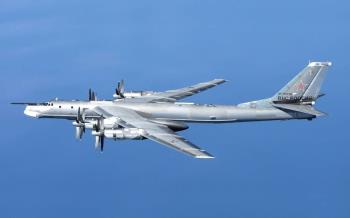Alwaght- Iraq’s Defense Minister Juma Anad Sadoun visited Egypt on Thursday while signs showing Baghdad and Cairo are heightening the levels of their relationship and cooperation.
The visit to Cairo of this senior Iraqi official comes as Egyptian officials already paid visits to Baghdad, including that by Prime Minister Mustafa Kamal Madbouly.
Since its start of work in 2014, President Abdel Fattah el-Sisi’s government voiced support for stability and unity in Iraq and tried to build a bridge to Iraq through Jordan in a push to expand ties to Baghdad. The Egyptian leader in 2015 and 2019 hosted Iraqi PMs visiting Cairo. At an Egyptian-Iraqi-Jordanian summit in Cairo 2019, the trio discussed and approved for the first time strategic cooperation.
After Mustafa al-Kadhimi assumed the office of prime minister in Baghdad, Iraqi continued its movement in the path of relation expansion with Egypt. Egyptian and Iraqi leaders earlier discussed with Jordan’s King Abdullah II the ways to pursue strategic partnership the blueprint of which already drawn.
But what does Cairo seek behind building a partnership with Baghdad? And what elements do affect this relationship?
Economic, political, and military relations
Political, military, and economic ties make up the essence of the Iraqi-Egyptian partnership in which Jordan has the role of a linking element. This stood as the stepping-stone to what was later named the New Levant Initiative.
Considering its need for energy especially oil, Egypt tries to get much of it from Iraq. At the same time, it wants to provide part of Iraq's need for power. Also, the devastating wars in Iraq and deep damage to the country’s infrastructure encourage Cairo to relatively seek the involvement of its labor force and companies in the post-ISIS reconstruction process.
Meanwhile, in their political and military cooperation, the two countries emphasize the regional stability and counter-terrorism fight. Having in mind that Egypt itself grappling with terrorism in the Sinai Peninsula and Iraq is the main victim of terrorism in the region, Baghdad and Cairo seek to shore up their collaboration in the anti-terror fight.
The important point is that el-Sisi’s Egypt, just unlike Morsi’s, set its policies towards Syria and Iraq on the stability and unity of these two Arab countries. This divided the Egyptian stances from those of Saudi Arabia and the UAE as the two key Arab allies of Egypt. However, with the Saudis and Emiratis reviewing their policies on Iraq and Syria, the ground was prepared for Baghdad and Cairo to scale up their cooperation.
What elements do influence Cairo-Baghdad relations?
Baghdad-Cairo relations are influenced by a set of essential external elements. The first element is Turkey. Increasing Turkish influence in Iraq politically and economically and also a military presence in northern Iraq under the excuse of the fight against terrorism never appeal to Egypt as Cairo seeks to tighten the noose on Ankara in all areas. Egypt’s welcome of agreement between the Iraqi central government and the Kurdish Regional Government (KRG) on the Sinjar region comes as part of this Cairo policy. The Egyptians think that this agreement will eliminate part of the Turkish excuse for military presence in northern Iraq.
Another important element influencing their bilateral relations is the Saudi-Emirati alliance. This element is important from two aspects: the viewpoint of this alliance to the Iraqi-Egyptian ties and the viewpoint of Cairo to this alliance. Saudi Arabia and the UAE support growing Iraqi-Egyptian ties and that is for two reasons: to distance Iraq from Iran and to cut the Turkish toehold in Iraq.
Still, this welcome is never unlimited and the two countries have their own concerns about the expansion of the Iraqi-Egyptian cooperation. They fear that this partnership, which has Jordan onboard, can also expand to cover Syria later to build a rival camp in the face of Riyadh and Abu Dhabi in the future.
This comes as Egypt tries to reduce its dependence on the Persian Gulf Arab monarchies’ oil and get the Iraqi oil for proper prices or deal power for oil. This will strip the Saudis of their anti-Egyptian pressure tool.
At the same time, Egypt seeks to restore its active role in the region and move out of isolation by forming a new alliance with potentials for political and security effects in the region while gradually and conservatively attracting the Saudi and Emirati investment at home. This alliance is meant to cover Iraq, Jordan, even Syria later, and a couple of North African states.
The third element is the Islamic Republic of Iran. Some experts suggest that the New Levant Initiative is an American design aimed at separating Iraq from the Iran-led Axis of Resistance that covers Iraq, Lebanon, Syria, and Yemen. This comes while there are essential doubts about the success of this initiative and Egypt’s capability to address Iraq’s needs.
The initiative seems to be unable to meet Iraq’s needs in the short and even midterm and hence cannot be dubbed successful. Itself dealing with the internal economic crisis, Egypt in the past few years demanded economic and military aids from foreign sides. Thus, Cairo's weakness along with its alliance with the compromising Arab camp cut from Egyptian impression on the Iraqi political forces and public opinion for a foreign alliance.



























